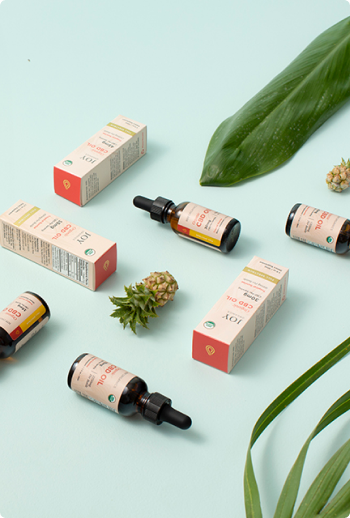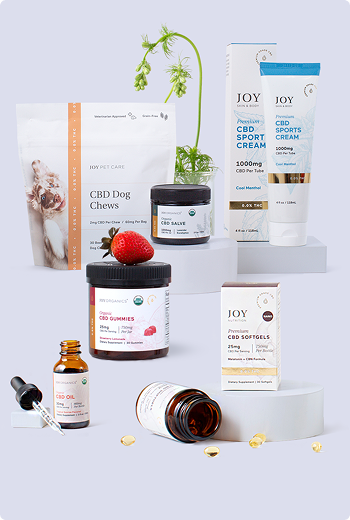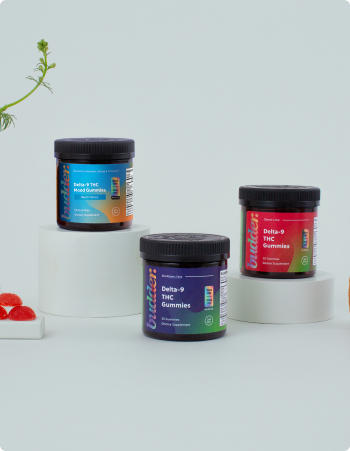The immune system is surprisingly complex, getting its “fighting power” from various food sources, minerals, vitamins, supplements, and organ systems. All these systems work together like a well-oiled machine. To ensure the immune system works optimally, we must understand the immune system a little better.
Here, we provide you with a list of 7 important things about the immune system that you probably don’t know.
1. Healthy Gut, Healthy Immune System
The bacteria in our gut, collectively called the human microbiota, plays an important role in immunity. Feeding the good bacteria the “right” foods is, therefore, important for us to maintain our health, too. The good bacteria send signals to our body to alert our immune cells of viral and bacterial invasions that may affect our body—the gut and lungs, in particular—and thereby eliminate these threats. They also play an essential role in balancing the immune response against bugs.
The bacteria in our guts love and thrive on fermented foods such as yogurt, kimchi, and kefir. They’re also fans of whole foods, such as fruit and vegetables. To ensure you have a healthy number of good, helpful bacteria in your gut, continue to feed them these “yum” foods. You could also consider taking some probiotic supplements.
2. Immunity Is an Intricate Balance. Boosting is Not Always the Answer.
A healthy immune system is all about balance. For example, when you have an allergic reaction to pollen, it is because the immune system overreacts to the perceived threat of the pollen and sends the system into overdrive, releasing too many inflammatory signals.
Sometimes, our immune system can act in overdrive and attack itself, causing autoimmune conditions. An immune response that isn’t strong enough, on the other hand, can make us ill.
It is important to note that the immune system does not attempt to fight off every bacterium it encounters. This is because not all bacteria are pathogenic i.e. cause disease, some of them are actually our closest “friends.” We explain more about the role of our bacteria friends below.
3. Our Immune System is Constantly Learning
Our immune system constantly needs to learn more about the microorganisms in our environment. From the moment before we are born, i.e. when we are in our biological mother’s womb, our immune system starts to develop. After we are born and as we grow, our immune system learns about different microorganisms—some of which are friends and others are foes—and how to fight them if and when they cause disease.
Our bacterial friends play a similar role and continue to educate our immune system about good bacteria and bad bacteria throughout life. In fact, in the presence of bad bacteria, some of our bacterial friends—collectively called commensal bacteria—protect us from bad bacteria by inducing protective immune responses.
4. Being too Clean Can Indirectly Harm Your Immune System
The rates of allergies and immune system-related diseases are on the rise in Western countries. Some scientists believe this may be a result of the “hygiene hypothesis,” which suggests that being too clean causes our immune system to malfunction. The hypothesis is that being too clean means our immune systems have a lesser chance to attack bugs required to strengthen our immune systems. This hypothesis has since been misnomered and is now called biome depletion.
So what is causing more people (both adults and children) to have more allergies and diseases related to the immune system? The current theory is that being too clean may inhibit the learning of the immune system. More specifically, it limits the diversity of good bacteria in our gut, causing the immune system to flare up from time to time.
As we have mentioned previously, good bacteria teach our immune system about other bacteria, often training and developing the immune system. If we don’t have enough of the good bacteria, our systems are often in trouble. We are in no way suggesting that you let go of your hygiene habits; just don’t go overboard with all the cleaning.
5. Positive Emotions Boost Immunity
According to the study of psychoneuroimmunology—which examines the interaction between the mind, the nervous system, and the immune system—there may be a link between the emotions that you feel and your immune system.
Steve Cole, a professor at the University of California, has published studies to show that stress and loneliness can negatively affect our immune system. Cole’s research on how positive emotions boost immunity has been met with severe criticism.
Research does suggest, however, that being happy may help keep the immune system strong. One particular research paper suggests that positive emotions may reduce susceptibility to the common cold. Similarly, another paper suggests that mild to moderate mood disturbances in older adults may be associated with a comparatively weaker immune response than their optimistic counterparts.
6. Diet Has a Major Influence
Studies suggest that eating a healthy diet consisting of whole foods like fruit, vegetables, nuts, and seeds reduces disease risk and helps counter the effects of inflammatory signals. These foods are rich in nutrients and antioxidants that help the body fight off harmful bacteria and viruses.
Contrarily, studies suggest that highly processed foods that are high in sugars and saturated fat, such as those commonly consumed in Western diets, are associated with continuous inflammation in the body. These diets are also associated with an increased risk of developing several chronic conditions.
7. Some Supplements May Help, But Not All
So far, there has been no evidence to support the use of any supplements for disease prevention. However, research has suggested that supplements may help support the body's natural defenses.
For example, according to a review paper published in 2013, vitamin C may help reduce the duration of a cold in adults and children. However, to date, the role of vitamin C in preventing and treating the common cold is still very much controversial. Similarly, and controversially, a 2017 study suggests that zinc supplementation reduces the duration of the common cold.
Although supplements may help fill the gaps in your diet and help you bounce back quicker, it is recommended that you pay extra attention to where you purchase your supplements from. Where possible, consider eating natural whole foods to get all (or most of) your vitamins and minerals.


































Join In On The Conversation
Your email address will not be published. Required fields are marked * Comments will be approved before showing up.